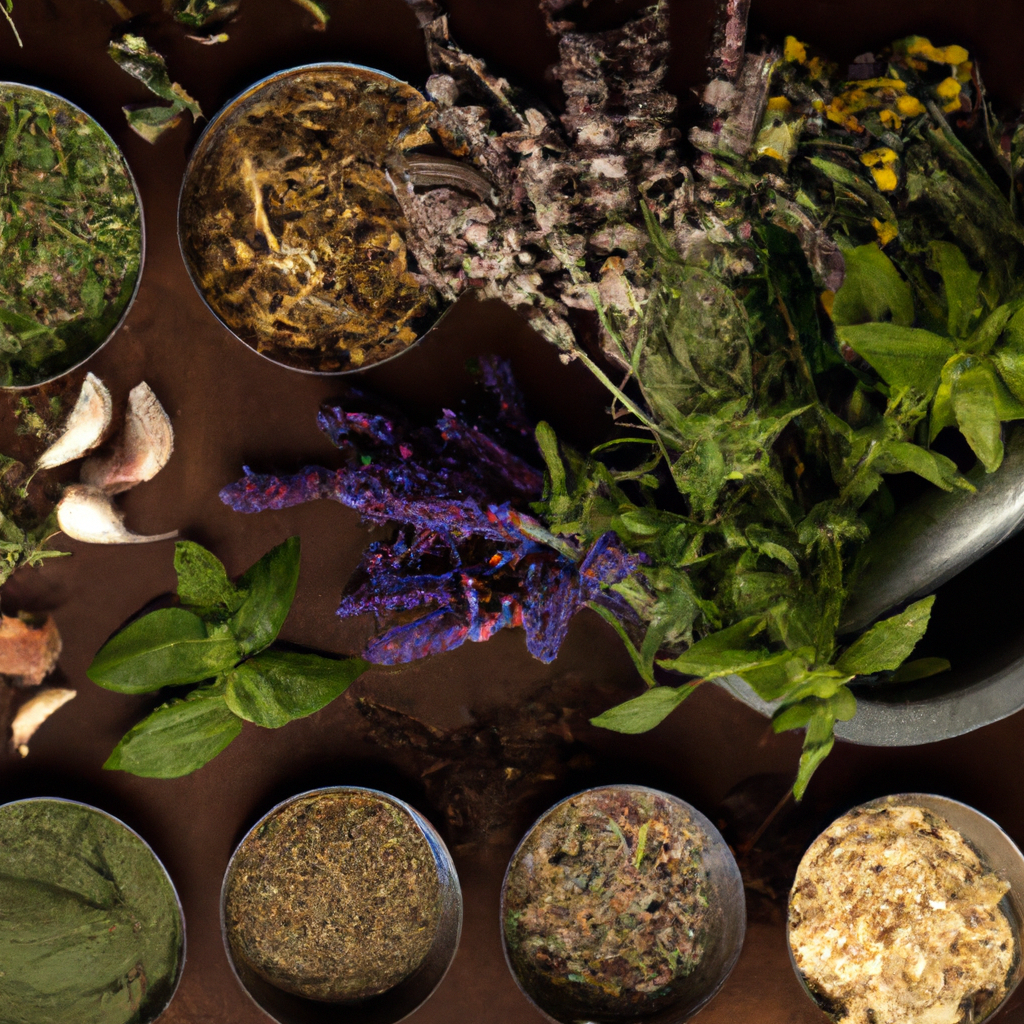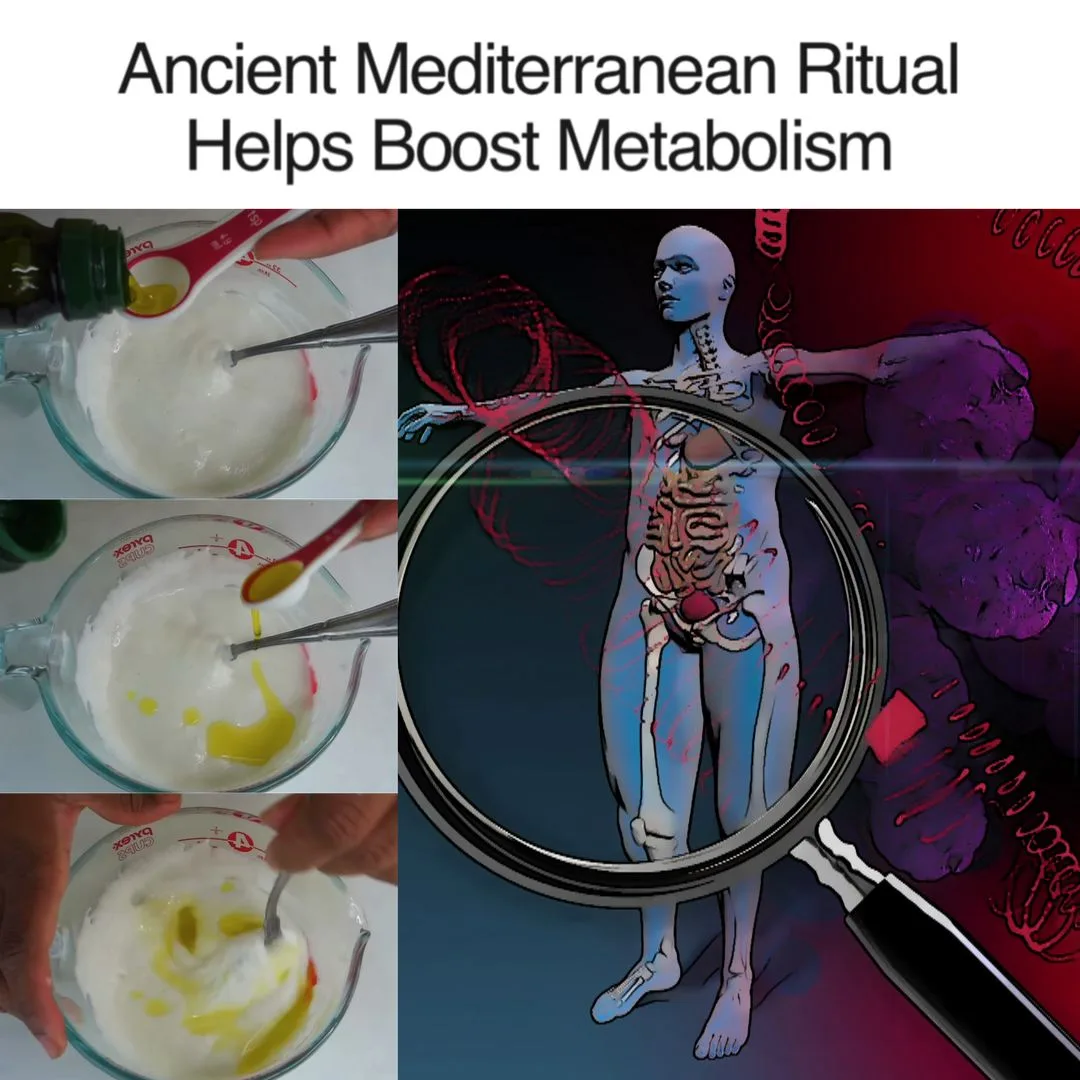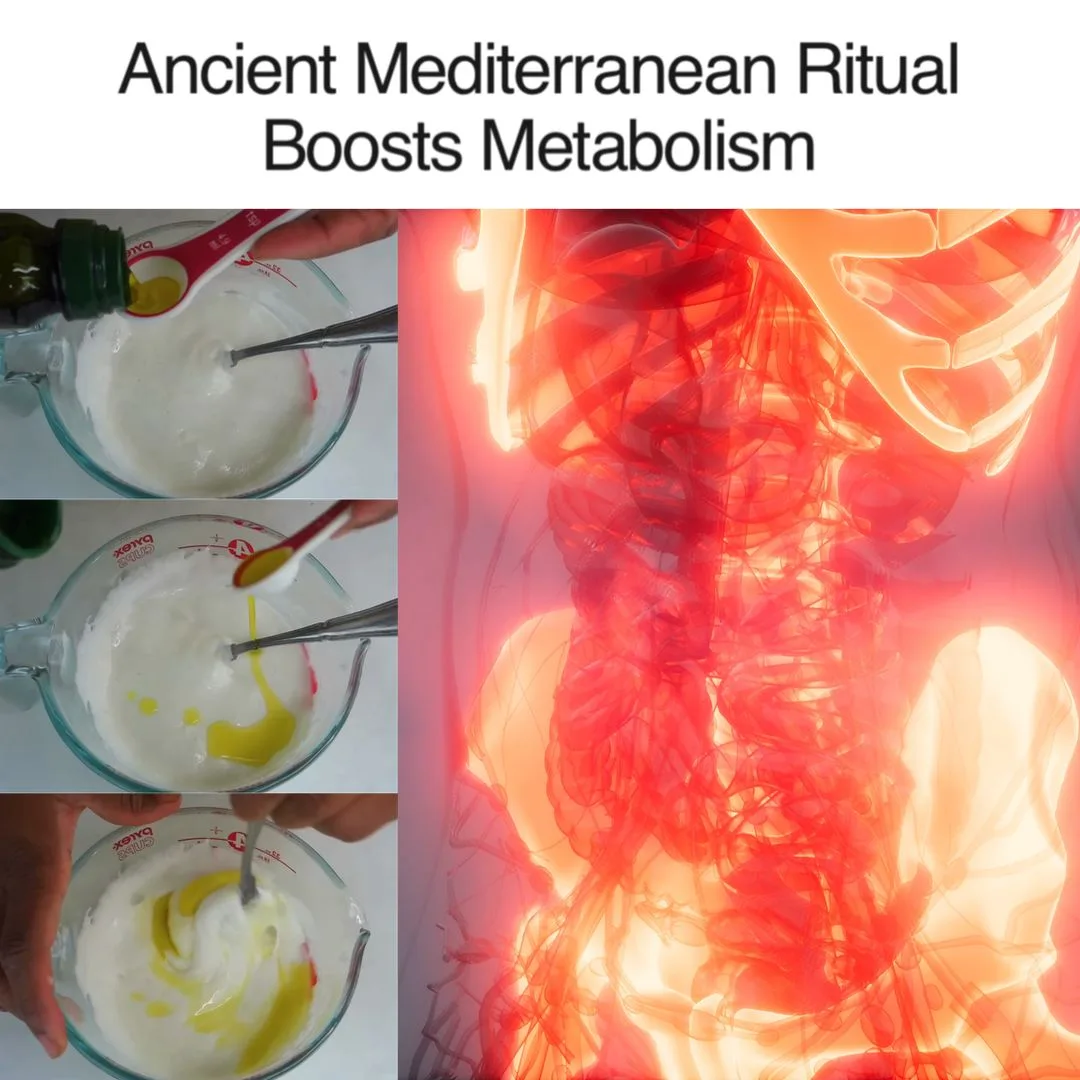You’ve been building meals around them for their vibrant flavors, but did you know your spice rack could be a secret stash of wellness? As you spin the carousel of your favorite seasoning throws, consider that each jar holds much more than just tempting tastes. The title, “Do These Herbs Also Have Other Health Benefits?” promises to take you on a journey into the less-known gifts of popular herbs. Expect to uncover the unexpected benefits lying hidden among familiar leaves and powders, everything from rosemary’s aroma lifting moods to basil’s potential role in healthy heart functions. This exploration just might make your next meal more nourishing than you’d ever imagined.
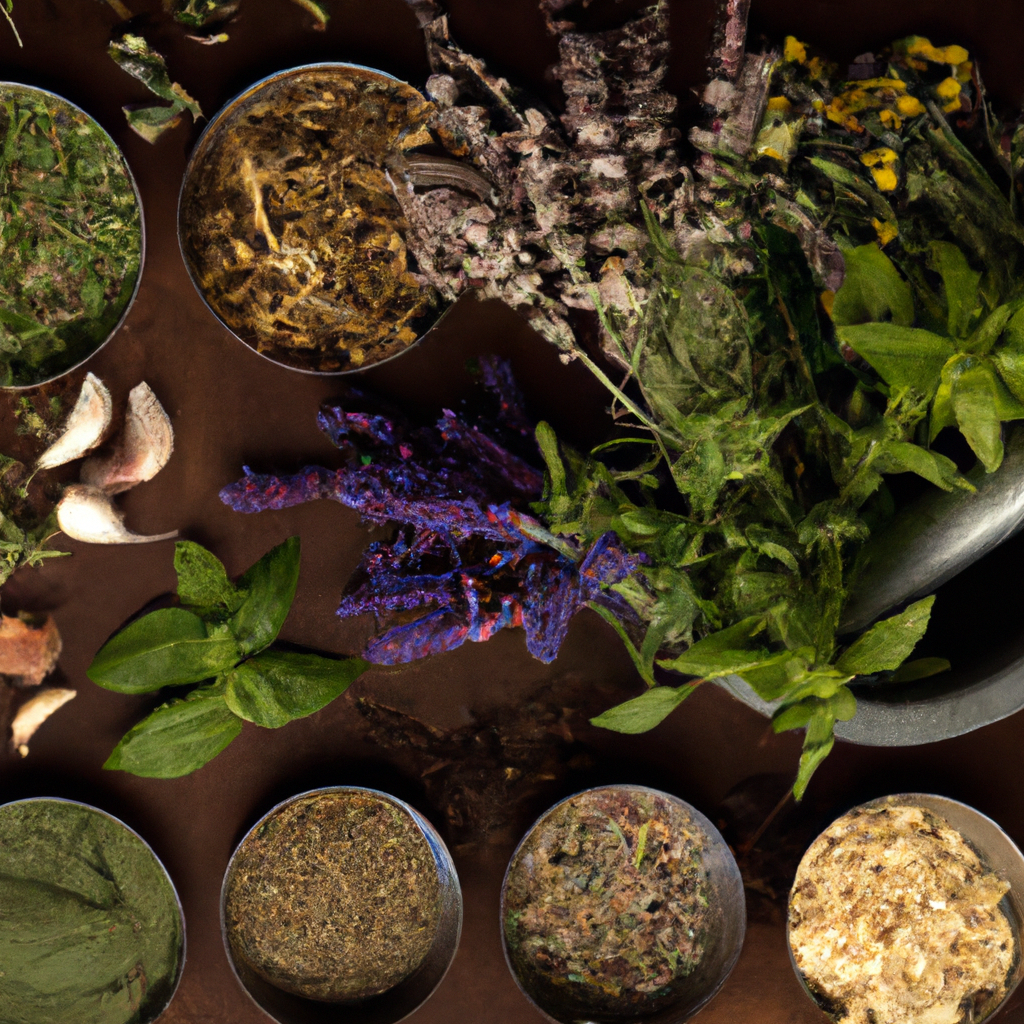
Herbs and Their Traditional Uses
You’ve probably sprinkled herbs on your food for that extra flavor or aroma, but have you ever thought about the traditional uses of these herbs in different cultures across the globe? Well, let’s take a trip down memory lane and travel through different eras to appreciate the extensive use of these natural powerhouses.
Overview of traditional herbs
From Ancient Egypt to Traditional Chinese Medicine and Ayurveda, herbs have been used for centuries to ward off diseases, boost immunity, soothe ailments and maintain a sound body and mind. Hundreds of different kinds of herbs, all with their unique properties, have been the center of natural healing systems and have also been used in religious ceremonies, food preservation and even beauty treatments.
Cultural significance of herbs
Different cultures attach varying significances to herbs. In some cultures, herbs were even believed to possess magical properties and were used to ward off evil spirits, while in some, they were a symbol of fertility and prosperity. For instance, garlic was loved by the Greeks and Romans for its therapeutic benefits and was also believed to provide strength and courage to warriors in battle.
Echinacea and Its Immune Support Benefits
Ever felt a cold coming on and reached for an Echinacea supplement or tea? If so, you’re following a tradition that dates back to the Native Americans. They identified the benefits of this herb in encouraging a healthier immune system.
Echinacea as a traditional medicine
Native Americans used Echinacea for treating a wide range of conditions, such as coughs, colds, sore throats and infections. Over time, this knowledge spread, and Echinacea gained popularity in other parts of the world as a natural defense stimulant.
Scientific studies of Echinacea
Modern research has supported traditional beliefs, demonstrating that Echinacea can effectively shorten the duration and severity of cold symptoms. The herb has been shown to stimulate the body’s immune system, but be sure to consult a healthcare professional before starting any new supplement routine.
Turmeric and Its Anti-Inflammatory Properties
When it comes to natural healing, turmeric is a superstar. It has been extensively used in ancient medicinal practices for its anti-inflammatory properties and is gaining scientific recognition to this day.
Traditional uses of Turmeric
In India, turmeric has been a significant part of Ayurvedic medicine for centuries. It was commonly used to heal wounds, treat skin diseases, and improve digestion. Additionally, it was a key ingredient in many flavorful dishes.
Modern research on Turmeric
Contemporary studies have revealed that curcumin, the active ingredient in turmeric, possesses powerful anti-inflammatory and antioxidant properties. It can help manage different health conditions like arthritis, diabetes, Alzheimer’s, and even certain types of cancer, though more research is needed.
Ginger and Its Digestive Health Benefits
Stemming from Southeast Asia, ginger is a versatile herb that has been a staple in traditional medicine.
Ginger in ancient medicine
Ancient Chinese and Indian medical texts recommend ginger to treat nausea, motion sickness, morning sickness, and upset stomach. A common home remedy is a warm ginger tea to soothe a sore throat.
Current research on Ginger health benefits
Today, scientific research suggests that ginger can indeed help with gastrointestinal issues, reducing nausea and vomiting. It’s also being studied as a natural remedy for arthritis and muscle pain.
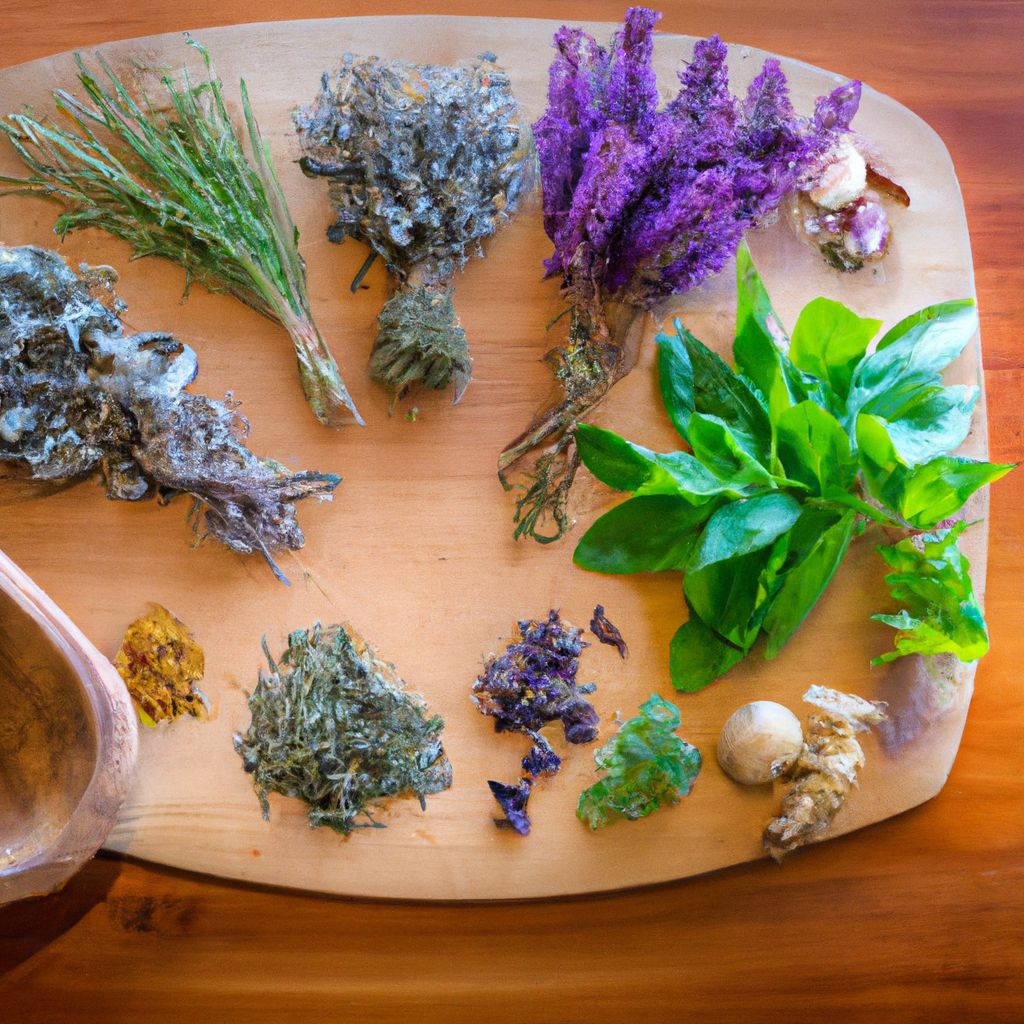
Garlic and Its Cardiovascular Health Contributions
When it comes to heart-healthy food, garlic holds a special place. Used by the ancient Greeks, Egyptians, and Romans, garlic has indeed passed the test of time.
Historical uses of Garlic
Historically, garlic was used to treat a plethora of ailments. Its therapeutic effects range from treating respiratory problems and parasites to alleviating digestive issues.
Modern day studies on Garlic
Modern science backs up these ancient practices, with studies showing that garlic has a significant impact on cardiovascular health. The active ingredient allicin seems to reduce blood pressure and cholesterol, making garlic a powerful tool for heart health.
Peppermint and Its Effects on Digestion and Headaches
Known for its distinct aroma, peppermint has been a favored herb for centuries for its medicinal properties.
Traditional benefits of Peppermint
Traditionally, peppermint has been used to soothe digestive issues, relieve headaches, and freshen breath. It has been a prominent player in herbal medicine across various cultures and eras.
Scientific findings on Peppermint
Modern research supports its traditional use in soothing digestive troubles and easing tension headaches. Its active ingredient, menthol, promotes muscle relaxation, which can help to ease pain and discomfort.
Rosemary and Its Cognitive Function Benefits
This beautifully fragrant herb, rosemary, does more than just add flavor to your dishes. It’s also been used as a cognitive stimulant throughout history.
Historical use of Rosemary
Rosemary was often associated with a sharp mind and good memory in ancient cultures. From students in ancient Greece wearing rosemary garlands during exams, to Shakespeare’s Ophelia remarking, “There’s rosemary, that’s for remembrance,” rosemary’s cognitive boosting abilities were well noted.
Modern research on Rosemary and brain health
With recent scientific studies, rosemary’s beneficial rosmarinic acid and antioxidant compounds are shown to boost brain function, improving concentration and memory. However, more research is needed to fully understand its effects.
Chamomile and Its Relaxation and Sleep Benefits
Chamomile, one of the oldest and most widely used herbs worldwide, is well recognized for its soothing and calming properties.
Ancient uses of Chamomile
Historically, chamomile has been used for easing anxiety and insomnia. It was also a remedy for digestive discomfort, stomachaches, and menstrual cramps.
Current studies on Chamomile
Modern-day research also backs the use of chamomile for helping with sleep and relaxation. Studies suggest its potential as a sleep inducer and in reducing the severity of generalized anxiety disorder symptoms.
Lavender and Its Anxiety and Stress Relief Benefits
Lavender, popular for its sweet floral scent, holds a prominent position in traditional medicine for its calming properties.
Cultural significance of Lavender
Through the ages, lavender has been a go-to herb for inducing relaxation and reducing anxiety. It was also used in baths to help purify the body and spirit.
Scientific studies on Lavender’s health benefits
Today, lavender’s essential oil is commonly used in aromatherapy, with studies supporting its role in reducing anxiety and improving sleep quality.
Conclusion: The Power of Herbs in Maintaining Health
Summary of herbs and their additional health benefits
These miraculous herbs indeed hold the power to support and maintain good health. Beyond their culinary uses, herbs have proven to be potent sources of antioxidants, anti-inflammatory compounds, immune boosters, and various other health-boosting compounds.
How to incorporate these herbs into your diet
incorporating these healthy herbs in your diet is quite simple. You can use them as a spice in your meals, enjoy them in a soothing herbal tea, or even take them as supplements. However, always consult with a healthcare provider before starting any herbal regimen, as some herbs can interact with medications and may not be suitable for everyone. Embrace these herbal wonders and enjoy their pleasant aroma and refreshing flavors while boosting your health naturally!
